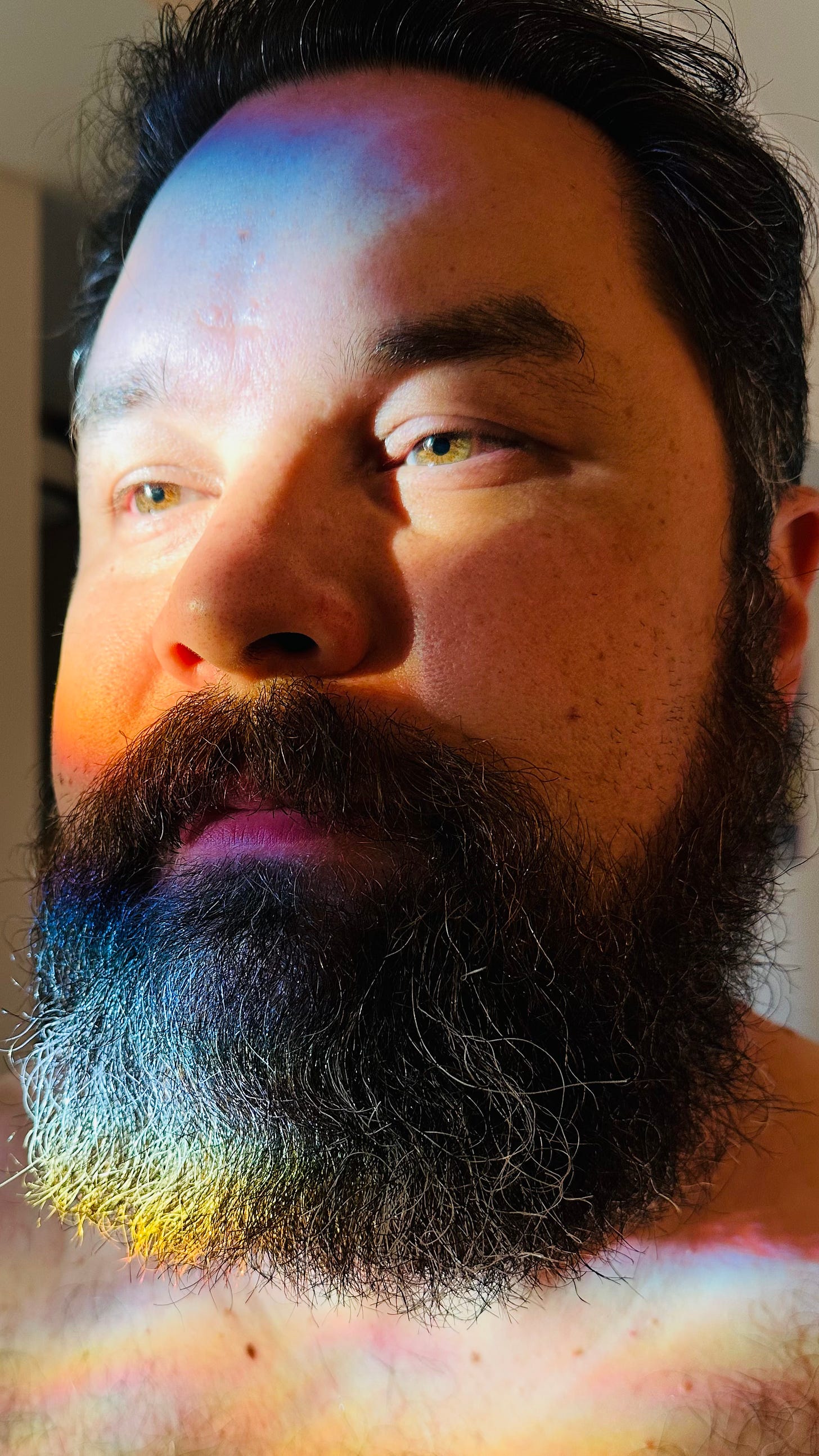I sat across from a widow who has spent months telling me about the husband she grieves—how he left love notes in unexpected places, his presence lingering in the life they built. I asked her, ‘If he could have guided you, what would he have said about grieving him well?
She and I spent the rest of our time musing on what we could put together, based on what we knew. I know we’ll continue that work too.
The experience stuck with me and continued to resurface- an insistent invitation.
What pains me most about the possibility of leaving Michael earth side, is that I wouldn't be here to help him with the weight of loss. So I’ve done the next best thing I could think of and began writing him a guide.

How to Grieve Me
This is my guide for you, beloved.
When I leave, grieve me whole.
Be angry with me for leaving you behind.
Rejoice, that I am free.
Make my funeral short, sweet, and honest. Wear what you want. If you read scripture, be sure to read poetry too. Have Kate, Brooke, and Lateka help you write my eulogy, they’ll know how to anchor your anxious jokes in sentiment. You’ll be nervous to speak, and your palms will sweat, you’ll have to do it anyway. And I’ll love whatever you say.
Don’t put me on a pedestal or paint me as always kind. We both know I wasn’t…we all know I wasn’t. But remind them I was funny, please, please remind them how funny I was.
Don’t dress me in something beautiful. Don’t dress me at all. Scatter me where you know I belong. The place where you can meet me in the wind.
Grieve me whole, beloved.
When you leave the funeral, make sure everyone who needs one has been hugged, especially you.
When you remember me, don’t edit my martyrdom and call it generosity. Grieve the whole of me, or my shadow will stay stuck to you. See and name the dysfunctions of me, for you’re grieving them too. Speak the names of my shadows in sacred spaces, or they’ll burrow into your skin like ticks.
And when they do burrow, because it’s just so hard to grieve them whole, make sure you pull them out slow and steady, don’t leave their head behind.
Grieve how I didn’t listen when you told me about your day. How I didn’t tolerate in you what ran rampant in me. Grieve how I met your heart with gentleness, but also how I poked at your insecurities. Lament and celebrate, all in the same breath, how alone you may be without me now.
Grieve me as the love of your life, and your greatest challenge. Grieve the whole of me.
Remember your pain does not honor me, your healing does. Do not use my absence as a reason to shrink your life. Find love again, your heart will expand to let it in. Travel far, and wide. Go to all the places that made my nose scrunch and my jaw clench. Do all you couldn’t while I anchored you. Mourn for the home my heart offered you.
Care for my animals how you know I’d want, or I swear to God I’ll haunt you.
And when it’s bedtime, the lights have turned off, and it’s just you and your loss, remember that I loved you whole enough to see you through this. I loved you enough in this lifetime to last until the next, and the next, and the next, and the next. You have enough of my kisses to sustain you until we agree to do this again. Gather them up from your cheeks, your forehead, your belly, and your lips.
Grieve me, how you loved me: Whole.
I wavered on whether to share this piece here. When I sat with my hesitation, I realized I was afraid it might create fear or sadness. But when I sat with that just a little longer, I understood why—because what I’m proposing here is that we talk about our own deaths more openly, before they are imminent. And we’re not really good at that, at least not in my experience.
Sure, we make our wills, and leave instructions for our belongings, our money, our legacies—even our names. But we rarely acknowledge the deeper truth beneath it all: we are all going to die. And we are all going to be grieved.
Elisabeth Kubler-Ross researched the experiences of those who knew their lives were ending, which led to the “Stages of Grief” model. End of Life/Death Doulas do deeply soulful work in helping people make meaning of death when it is near. But both focus on death when it has already announced itself.
What I’m inviting here is something different: to bring death into the conversation long before it feels close, to make space for its reality with intention and meaning—while we are still fully here.





Thank You, Jesie. Thank you for being brave and in the process offering healing to us. This post is a most beautiful gift. ❤️
I am oh so very glad you decided to share this piece, jesie ~ I am 'write' there with you 💖🙌🔥 ... in so many ways ✨️